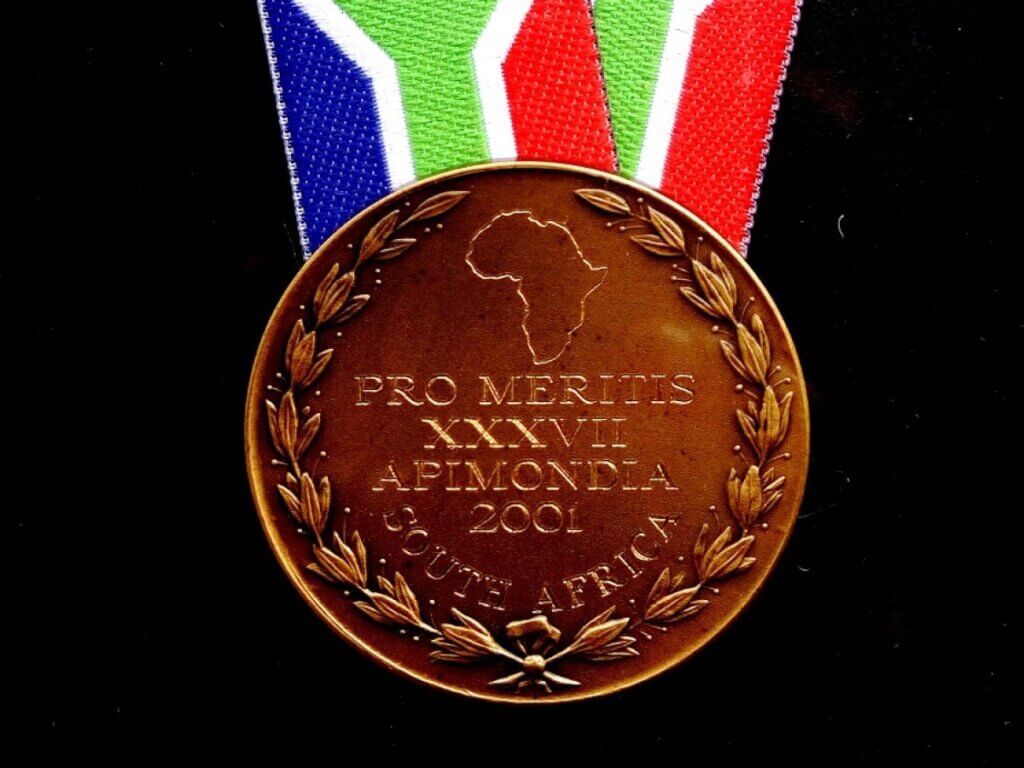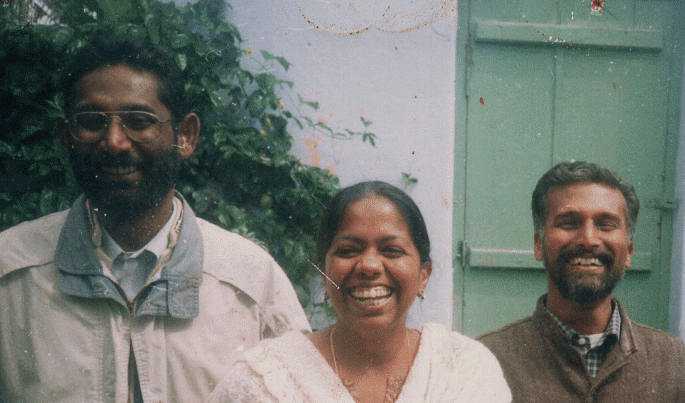
Mathew John, Snehlata Nath and Pratim Roy (left to right), who grew up in different parts of India, arrived in New Delhi to pursue their aspirations. Soon after, a fortuitous association spanning decades began to unfold in India’s first-ever biosphere reserve.
The idea of Keystone was conceived while conducting surveys on natural resources in Himachal Pradesh. On November 19, Keystone Foundation was registered as a trust under the Indian Trust Act, 1882, in Pondicherry.
On April 1, the team began conducting surveys on bees, honey-hunters and beekeepers in Kotagiri. Permissions were obtained from government bodies as well as the Khadi and Village Industries Board.
In March, following initial surveys on the status of traditional practices involving bees, a collaboration was established with three Indigenous villages for bee conservation and social enterprise development.
The first Green Shop opens its doors to bring wild and organic produce from Indigenous communities under the brand ‘Last Forest Natural Products’ (supported by SIDBI).
Keystone moves its headquarters to Kotagiri in The Nilgiris. Ford Foundation (Delhi) awards Keystone its first grant towards conservation and livelihoods of Indigenous NTFP gatherers.
Keystone becomes a partner of the Non Timber Forest Produce – Exchange Programme as the India network is established. Traditional food production centres are set up in the Nilgiris.
The first field centres are established in Pillur and Sigur regions to expand our work and impact.
Environmental governance grows into a full-fledged working area with a three-year survey being completed on honey trails, and a third field centre in Nilambur is established.
International networks and avenues for knowledge exchange expand as Keystone becomes a member of the International Union for Conservation of Nature (IUCN).
Last Forest Enterprises and Nilgiris Natural History Society are founded. Keystone is also accredited by the Credibility Alliance and Ecosystem Alliance.
Aadhimalai Pazhangudiyinar, an Indigenous producers’ company, and Radio Kotagiri 90.4 Mhz are launched.
The Nilgiri Field Learning Centre is launched to host an exchange programme in the Nilgiris in partnership with Cornell University.
Keystone wins the Sir J.C Bose Memorial Award (scroll below for a full list of awards) and joins the advisory panel of FairWild Foundation.
The organisation celebrates 25 years since launch, and wins a grant of INR 5 crore from HCL Foundation to conserve water resources in the hills and improve access to safe water.
As the COVID-19 pandemic unfolds, Keystone promptly forms a service delivery group to bring rations, medical supplies and healthcare services to the local residents of the Nilgiris.
Keystone is selected as the India winner of the UK PACT Green Recovery Challenge Fund to support our work in climate resilience!
Last Forest is a social enterprise that was incubated by Keystone in the year 2010. Through its operations the company supports indigenous communities to sustain themselves by empowering their skill sets and bringing economic growth.
The Nilgiri Natural History Society was established in 2009 by Keystone Foundation with a focus on working with people from all walks of life, towards an ecologically conscious community where people and biodiversity co-exist. The NNHS through its conservation education, awareness and outreach activities works to tell the story of the biosphere, through experiential learning and sharing.
Aadhimalai Pazhangudiyinar Producer company was formed in 2013. It is a collective of tribal producers of the Nilgiri Biosphere Reserve. Aadhimalai collects forest and agricultural produce from tribal communities and helps in processing it and providing market solutions.
Non-Timber Forest Produce – Exchange Programmer was setup as a Section 8 company in the year 2019. The principle objective of this company is to provide technical and strategic assistance to community-based organisations (CBOs) and their support groups on legal aspects, advocacy, resource management, marketing and other relevant concerns.
The Nilgiris Foundation (TNF), was registered as a non-profit in 2021 to build support for the work of Keystone Foundation within the U.S.A. The organisation will act as a bridge for ideas, partnerships and resources between India and U.S.A.
Since 2001, Keystone has been the recipient of national and global awards for our achievements. See below a list of accolades graciously accepted by us.
Barefoot Ecologists, a project under the Climate Change programme won the ‘Transformational’ category of the Gender-Just Climate Solutions Awards at the UN COP27 held in Sharm-al-Sheikh, Egypt. The project was selected for its spotlight on the knowledge and observations of Indigenous women in the Nilgiris in the context of ecosystem changes. Bhavya George, programme coordinator of Climate Change, accepted this award on our behalf.
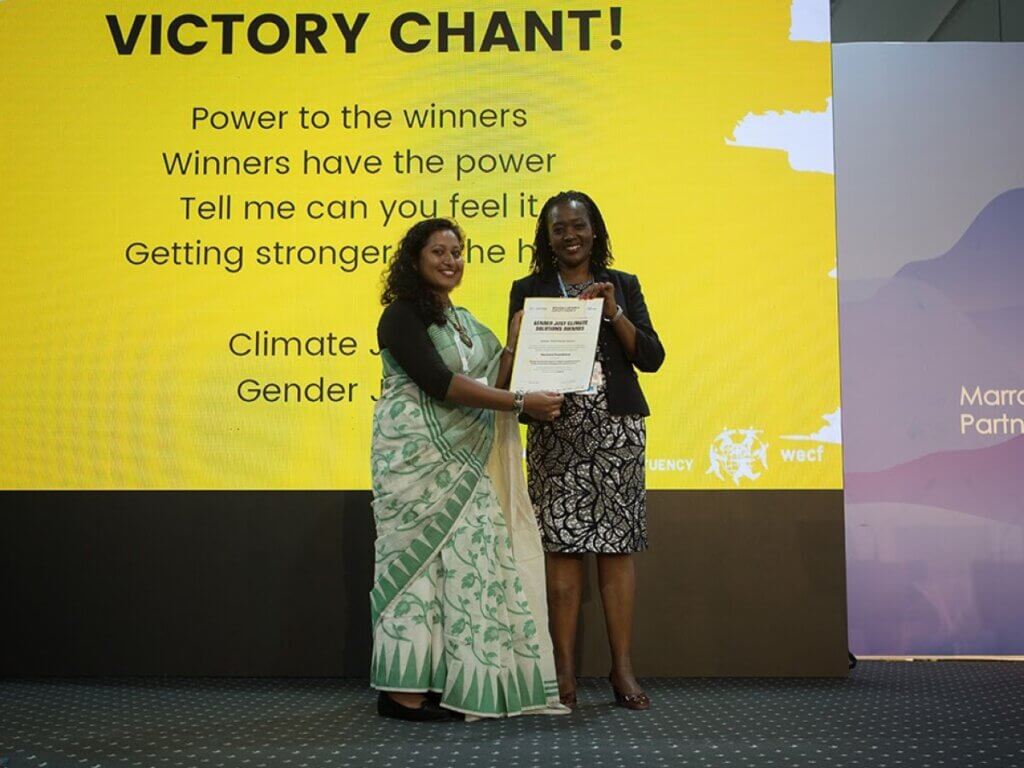
Founder-Director Snehlata Nath received the Nari Shakti Puraskar Award from the President of India in Delhi, on International Women’s Day. It is the highest civilian honour for women in India. Sneh has been extensively active in eco-development, livelihoods, and sustainability efforts in rural areas of the Nilgiri Biosphere Reserve. Through her work, she has carved a niche for indigenous women in the Nilgiris and has also improved women’s financial stability through social enterprises.
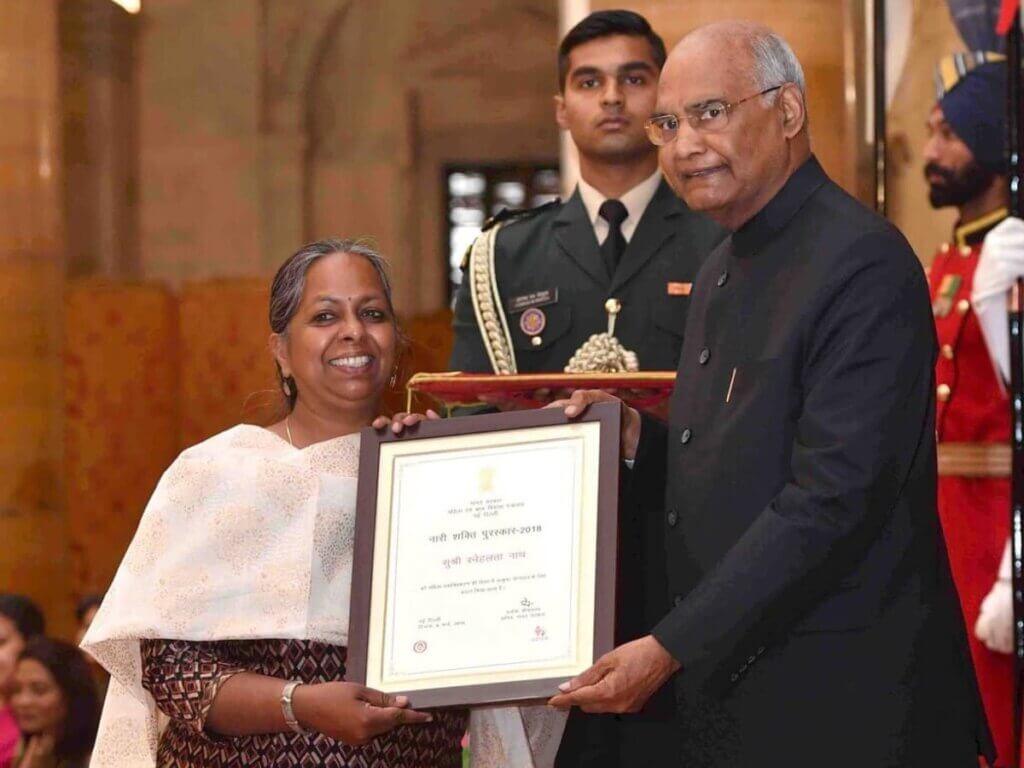
Robert Leo, Advisor at Keystone, received the J.C. Bose Memorial Award for his contribution in designing technology, revival of organic agriculture and promoting beekeeping of Apis Cerena species. The award ceremony was held on National Science Day conducted by Indian Science Monitor. The award was conferred by Padma Vibhushan Dr. M.R. Srinivasan, Former Chairman, Atomic Energy Commission.
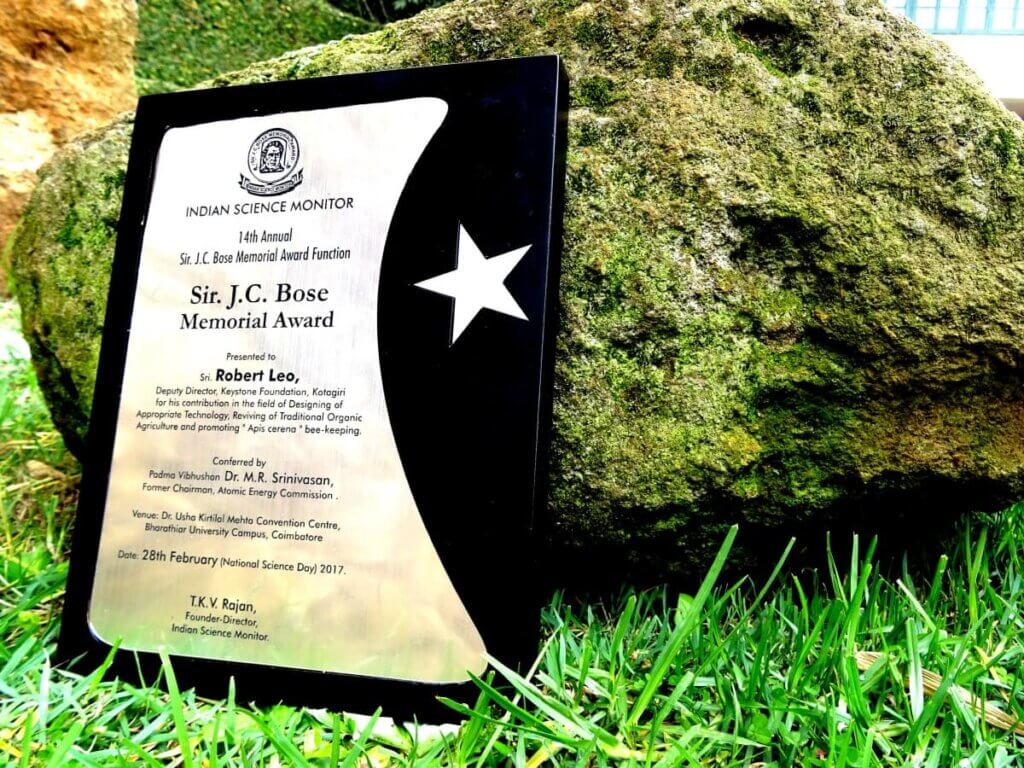
Snehlata Nath, Founder-Director at Keystone, received the Jamanlal Bajaj Award for her outstanding contribution over the decades, within the field of Science and Technology. The award was presented by Honourable Pranab Mukherjee, President of India.
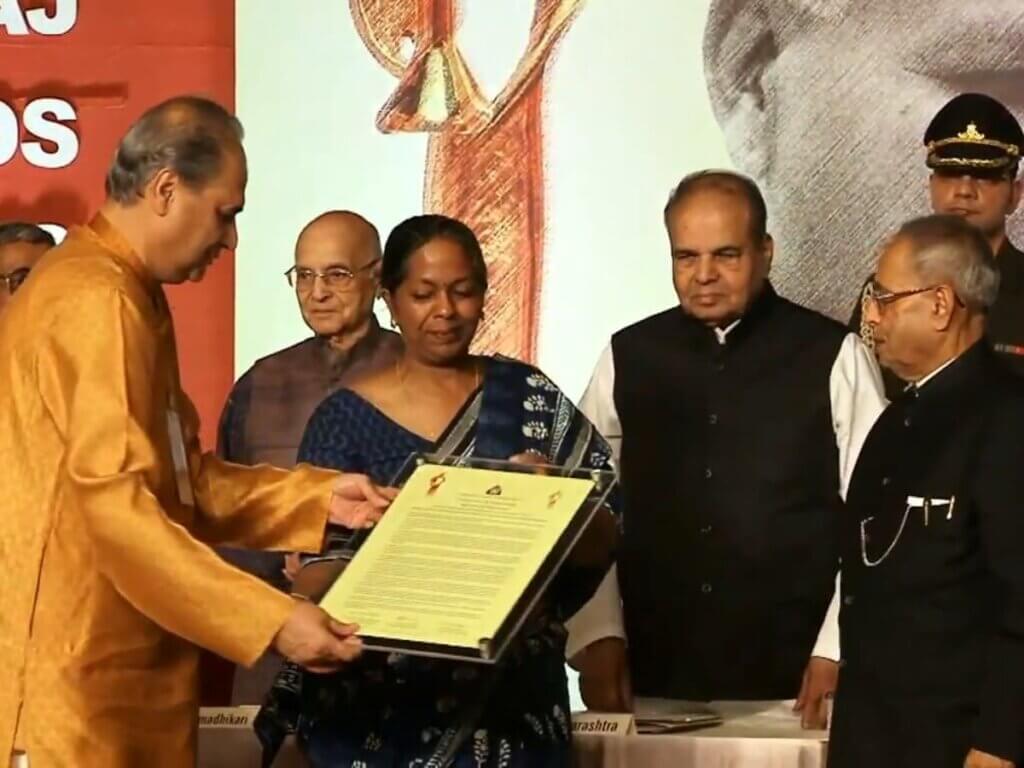
Keystone was nominated as a finalist, with the ‘Cliffhanger’ title as part of the BBC World Challenge, chosen for our efforts in enhancing and supporting the sustainable practice of traditional honey-hunting in South India and in helping them find lucrative markets to sell their produce for a fair price. “Keystone Foundation is keeping an ancient and sustainable tradition alive by creating markets for wild honey,” wrote BBC.
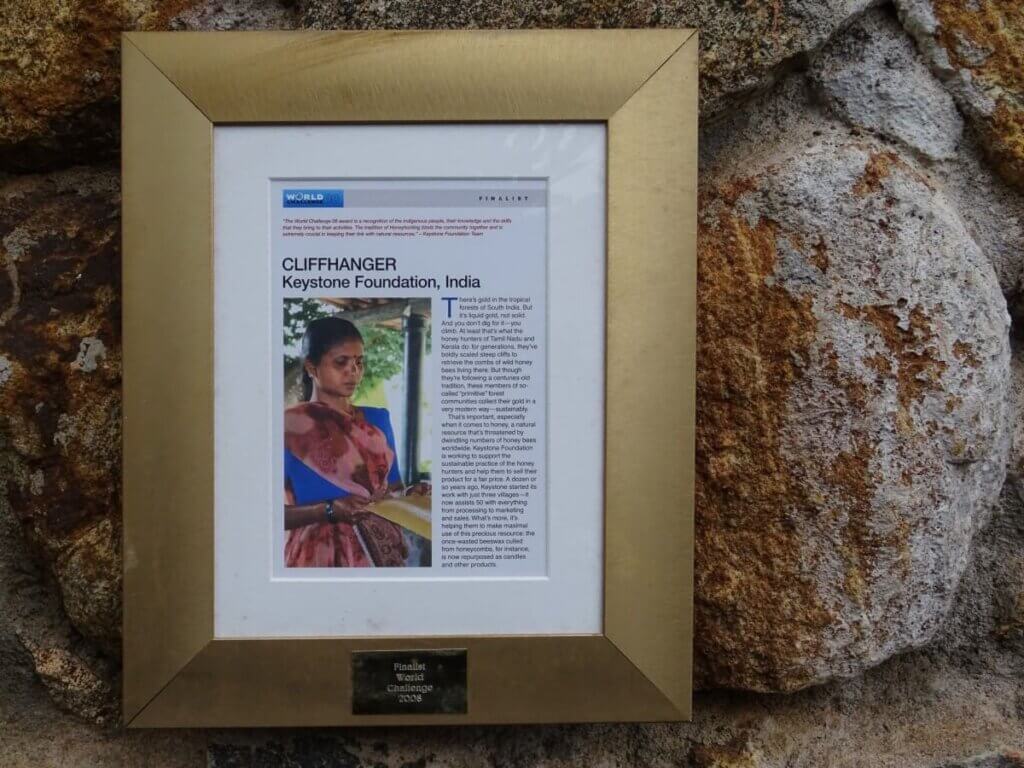
Keystone Foundation, along with the District Administration and residents of the Nilgiris, received a Guinness World Record certificate for participating in the record for planting the highest number of trees (42,182) in one day. The certificate was awarded on June 24, 2002.
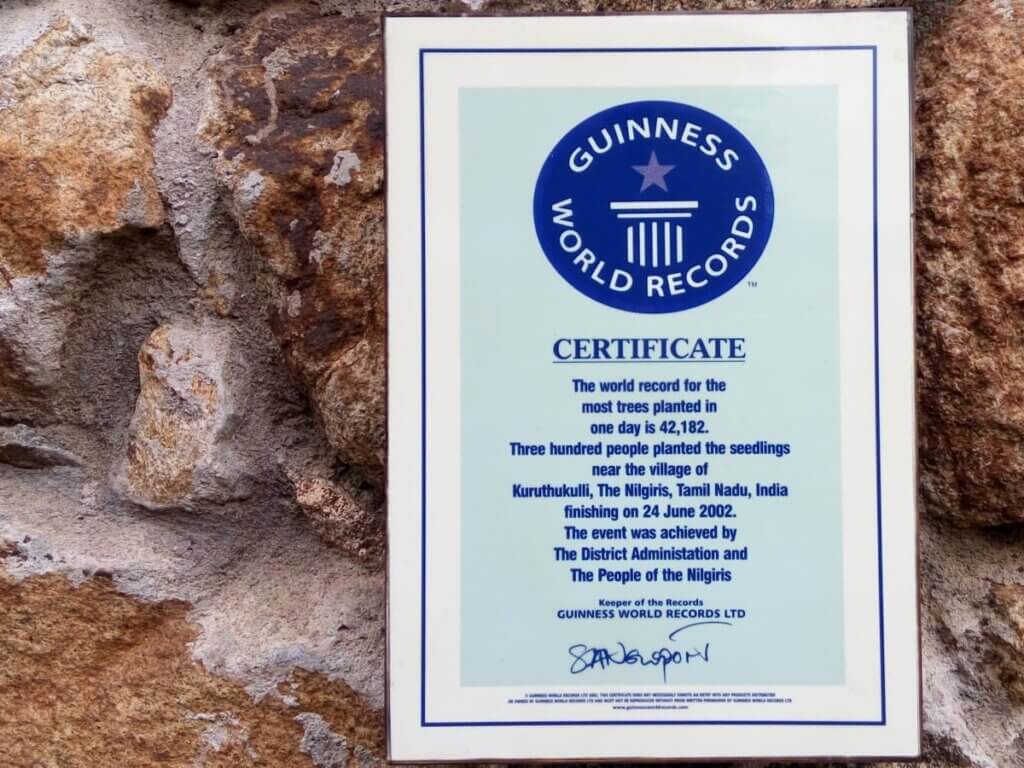
‘Honey Hunters of the Blue Mountains’, a film conceived by Keystone, and directed by Mike Pandey, founder of Riverbank Studios, was nominated for three categories of awards at the 11th International Wildlife Film Festival held in Albert, France, in March 2001. The categories are: the Prix Spécial du Jury (Special Jury Prize), the Prix de la Relation Homme-Animal (Best Picture on Human-Wildlife Conflict) and Prix Spécial du Meilleur Son (Best Sound).
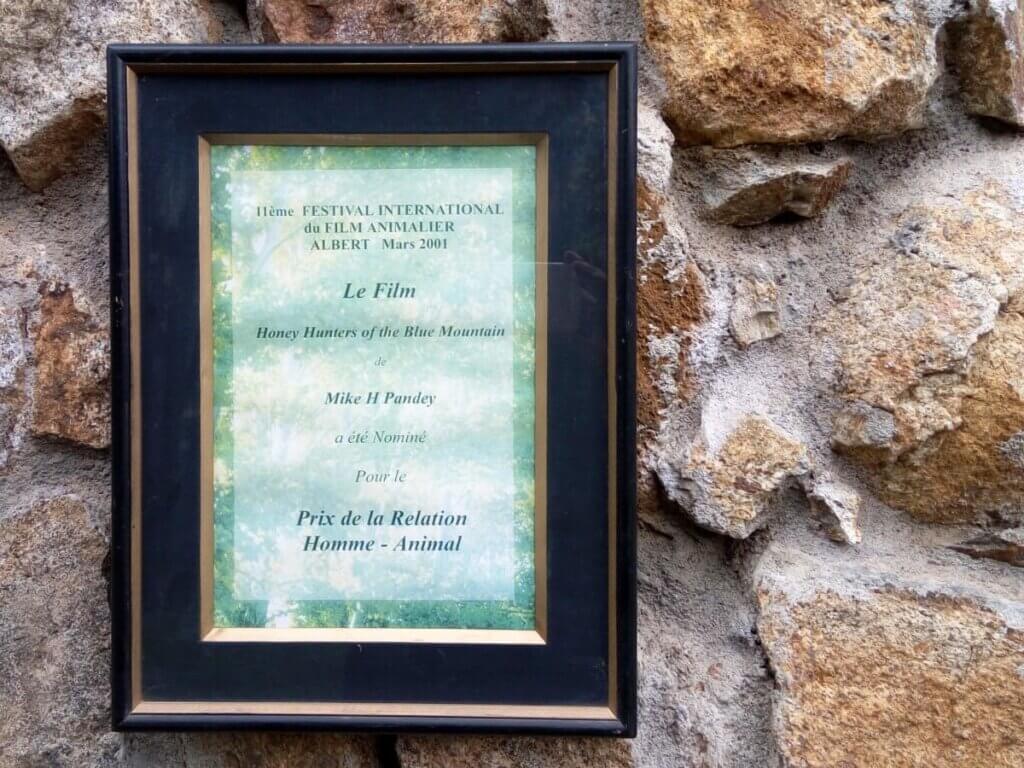
Keystone received a medal at the Pro Meritis 37 Apimondia (International Apiculture Congress) held in South Africa in 2001, for the film ‘Honey Hunters of the Blue Mountains’.
